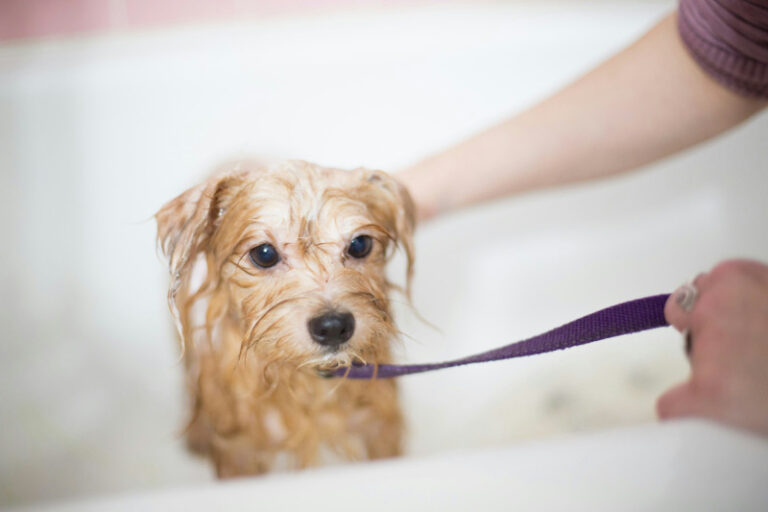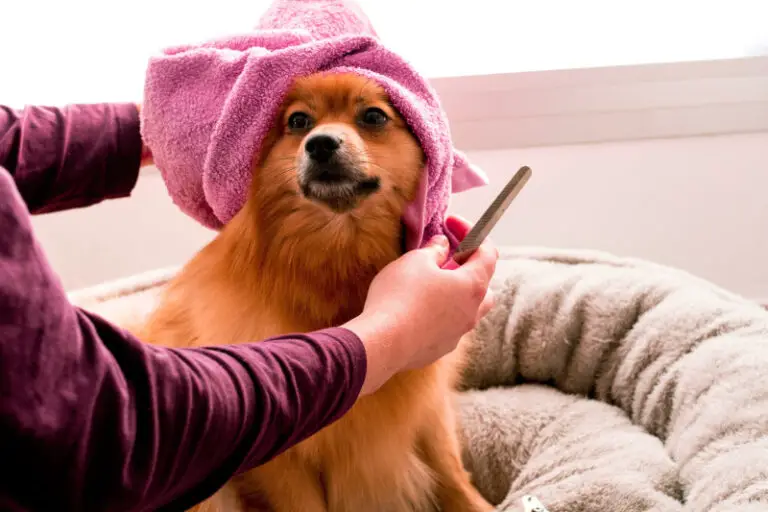If you are thinking of buying your first dog, or even if you have already bought it before, it is important that you put into practice the following tips, not only to help you make a better decision but also to guide you in the purchase process. So let’s see what buying a puppy checklist is?
Table of Contents
How to buy a dog safely?

1. Contact several breeders before buying
Staying with the first breeder that appears is usually a mistake. As a future dog owner, you’ll want to research and compare different breeders before you buy. Contact several reputable breeders and ask any necessary questions. Then try to meet them face to face.
Whenever possible, visit their facilities to see first-hand what the breeding conditions are. Remember that breeders are also salespeople, so even when they are good, tell you the truth, and answer all your questions, they are still trying to make a sale.
A professional and reputable breeder will have no problem showing off their facilities because they have nothing to hide. If a breeder tries to bypass this step, he is probably following unethical breeding practices.
This may take some time and effort, but it’s worth it. It’s definitely not a decision you want to rush.
2. Don’t buy from a puppy mill
Puppy factories or farms engage in mass breeding of puppies, usually in very poor conditions. The breeding practices at these facilities are unethical and harmful to the mothers, not to mention the puppies are neglected.
Lack of space and socialization, combined with rough treatment, leaves many puppies traumatized early in life. In addition, unsanitary conditions increase the risk of getting puppies sick with parasites and parvovirus.
3. Not buying a dog completely online
Although today the vast majority of people search for their pet online, no one should buy a dog online without first seeing it in person. Avoid the typical scenario “I click on buy and they send me my puppy”. It is known that many of the sites that are dedicated to selling dogs like this end up being fake.
They may all seem real and legitimate, but they are nothing more than a scam.
4. Ask the right questions
It is important that you and the breeder are on the same page before closing the purchase. That person should be able to give you clear and detailed information about the dog’s and its parent’s genetics, appearance, behavior, health status, vaccination/deworming history, etc.
A breeder who really cares about the future of their puppies will also have questions for you.
5. Make an early visit to your future puppy
Once you have selected the breeder and you know which puppy you want to buy, be sure to visit them. Many people skip this step. The pup may be too young to be separated from the litter and taken home, but that doesn’t mean you can’t visit.
Take the opportunity to see how he interacts with the other puppies in the litter. This can give you an idea of their personality and level of sociability.
A visit before the final purchase also allows you to check if there are any medical or behavioral problems in your dog or his siblings.
6. Physically inspect the dog
Although medical history is a requirement that everyone usually has in mind, a good recommendation is to physically check the dog before taking it home. Examine the eyes, fur, ears, back, and rear. If there is discoloration in the coat or any other physical defect, this is the time to identify it.
A sick puppy will show visible signs of illness.
7. Feel the personal connection
As much as you like the appearance of one breed or another, what we all look for in a dog is, after all, a companion to care for and love. It all comes down to that special connection you feel for the pup from the first time you see or hold them.
Where to buy a dog?
The best place to buy your dog will always be a recognized breeder, where ethical, controlled and legal breeding practices are maintained. The vast majority of specialized breeders are passionate about the breed they breed, which is why they are concerned about the health and well-being of their puppies.
As a prospective owner, you’ll want your puppy to come from a breeder who not only maintains the purity of the breed, but also considers the genetics, health, and temperament of the parents.
Avoid buying from a puppy mill or an illegal breeder. The main interest of this type of facility is to make money; they pay no attention to the health, genetics, or well-being of the mothers and their cubs. In general, they are dogs that live and are raised in precarious conditions. Many of the puppies you can find in pet stores come from puppy farms.
Questions to ask before buying a puppy
Are the puppy’s parents healthy?
Since certain breeds are prone to serious genetic conditions, responsible breeders often request that their dogs be evaluated and screened for possible diseases in their litters. In that case, the dogs are certified as healthy dogs.
Be sure to study the specific breed to see if there are any common genetic issues worth discussing.
How big are the puppy’s parents?
The size of a dog’s parents is considered a good indicator of how large it can become as an adult.
Can I meet the whole litter?
Spending time with the entire litter will allow you to observe the puppies’ personality, energy level, and health. Ideally, they should interact well with each other and feel comfortable around people. They shouldn’t flinch when you approach or touch them, nor should they resist when you turn them onto their backs and try to hold them down.
Can I meet the dog’s parents?
Whenever possible, it is advisable to meet the puppy’s parents. You want them to be in good health and have a good general temperament, with no hints of shyness, dominance, or aggressiveness.
How old are the puppies? At what age can I take the puppy home?
Puppies are usually ready for adoption between 8 and 12 weeks of age. It is important that they have time to socialize with the mother, their siblings, and other dogs, in those first weeks of life. Separating them too soon can be traumatic.
Has the puppy been socialized?
Question the level of socialization to which the puppy has been exposed. Early socialization is essential for puppies 6 to 16 weeks of age. This is achieved through positive experiences with other dogs and humans of different ages, breeds, and sizes.
Have you been given vaccinations? When should you get your next round of vaccination?
Puppies generally begin their vaccination schedule between the sixth and eighth week of life. Ideally, vaccinations are administered by a licensed veterinarian, not a local store.
See below: Vaccination Schedule – At What Age Are Dogs Vaccinated?
Are the puppies in that litter wormed?
Virtually all puppies are born with parasites, which is why routine deworming is recommended as early as the second week of life. Most puppies will have received at least one dose of some deworming medication by 6 weeks of age.
Has any puppy in the litter been sick? Have there been any cases of parvovirus?
If any of the puppies have been sick, it’s a good idea to ask about the symptoms, diagnosis, and treatment steps. Ask to see medical records that include exams, weigh-ins, deworming treatments, and vaccinations.
What is your guarantee as a breeder? How long is that warranty?
Assuming that some problem arises in the future, for example, that the puppy has a serious illness, what will the breeder do to compensate you? This is a difficult subject, but it is worth making it clear before making the purchase.
When should the first visit to the vet be?
Most breeders recommend, or may even require, an exam within 3 to 14 days of getting a puppy. Consider it an opportunity to evaluate the puppy before finalizing the contract.
Do you have any references from previous buyers?
Ask the breeder for references from other owners who have bought from him in the last year. Contact them and ask for their opinion of the breeder. Ask them if they are happy with their pet.
Is signing a contract required?
If so, what is in it? Is the breeder willing to accept the puppy at any time if you can’t keep it?
What is the dog’s family history?
Ask if the breeder has information on the breed line. For example, how long have most of the dogs in that line lived and what do they normally die from. This type of information can be important for monitoring your dog’s health as he ages.
What food is the puppy currently eating?
It is advisable to continue giving the same food during the first days at home to avoid the risk of gastrointestinal discomfort. A puppy’s diet should always be changed gradually. You should also know how much he eats and at what times, so that you can keep the same routine for the first few days.
What training tips can work best?
One of the most challenging things for a new owner is homeschooling their puppy. Breeders are very experienced at this and often have very helpful advice that has worked to train other puppies.
In fact, many breeders want to be able to keep track of their dogs’ lives and are willing to provide support and answer questions when in doubt.
What does the purchase include, besides the puppy?
Depending on the breeder and where you live, purchasing a puppy may include the following:
- Copy of the dog’s medical records (vaccination history, deworming, any health problems, and their corresponding treatment)
- Breed club information (if applicable)
- Information and pedigree certificates
- Microchip
- Food for 2-3 days
- Any medications the puppy is taking (if any)
- A towel or item with the scent of the litter and the mother
- Specific instructions on care, treatments, etc.
- Contract and warranty information (if applicable)
The 9 questions you should ask yourself before buying a dog
1. Are pets allowed where I live?
The idea of having a dog is wonderful, but it is important to take into account the possible restrictions of the apartment or building where you live. Many apartments, especially in cities, have breed or size restrictions, or simply don’t allow dogs.
Unless you own your home, make sure your landlord agrees to the specific breed you plan to buy, and ask if this represents an increase in rent.
2. Can I afford a dog?
Dogs are expensive. You must be prepared to assume expenses not only for food and visits to the veterinarian but also for supplies, training, grooming, etc.
3. Do I have time for a dog?
A dog is not like a fish: you can’t feed it and then forget it exists for a while. By adding a dog to your family, you are taking on the responsibility of another life, so make sure you have time to care for him. Dogs, especially puppies, require a lot of love and attention.
If you travel frequently or work many hours a day, you may want to reconsider buying a dog at this time.
4. Can I take him out to exercise every day?
Dogs need exercise, regardless of whether they are puppies or adults. As a future owner, you will want to have enough time to exercise the dog every day, whether it is taking a walk, jogging, playing in the yard, etc.
5. Do I have the patience to train a dog?
Training a puppy is not easy. Puppies are naturally curious; they chew, destroy things, leave “accidents” on any corner, and require training to behave well.
The same goes for older dogs. Even if the dog was previously trained at another home, you may need to retrain it, especially after leaving a shelter.
6. Do I have everything I need for the arrival of my new dog?
A good tip is to buy the things you will need in advance. Included here are bowls for food and water, a leash collar for dogs, a bed with its blanket, and various toys to make your new friend feel at home.
It may interest you: 11 Types of Dog Collars – Uses and Materials [Which is Better]
7. Who will be my veterinarian?
One of the most important steps before buying a dog is to find and contact a good veterinarian in your area. In fact, you should schedule a visit within the first week of bringing the puppy home.
8. Do I know the potential dangers for a dog?
Be sure to examine the environment to identify and change things that may endanger the health, and ultimately the life, of the pet.
Recommended: 9 Potential Dog Poisons – What Can Poison My Dog?
9. Do I really know the temperament of the breed?
Do not settle for knowing the typical traits that everyone repeats about a particular dog. Dedicate the necessary time to know the true personality of the breed; ask yourself questions like what does he like, what does he not like, how is he with children/strangers, does he adapts well to changes, does he responds quickly to training, is the quiet or too vocal, etc.



